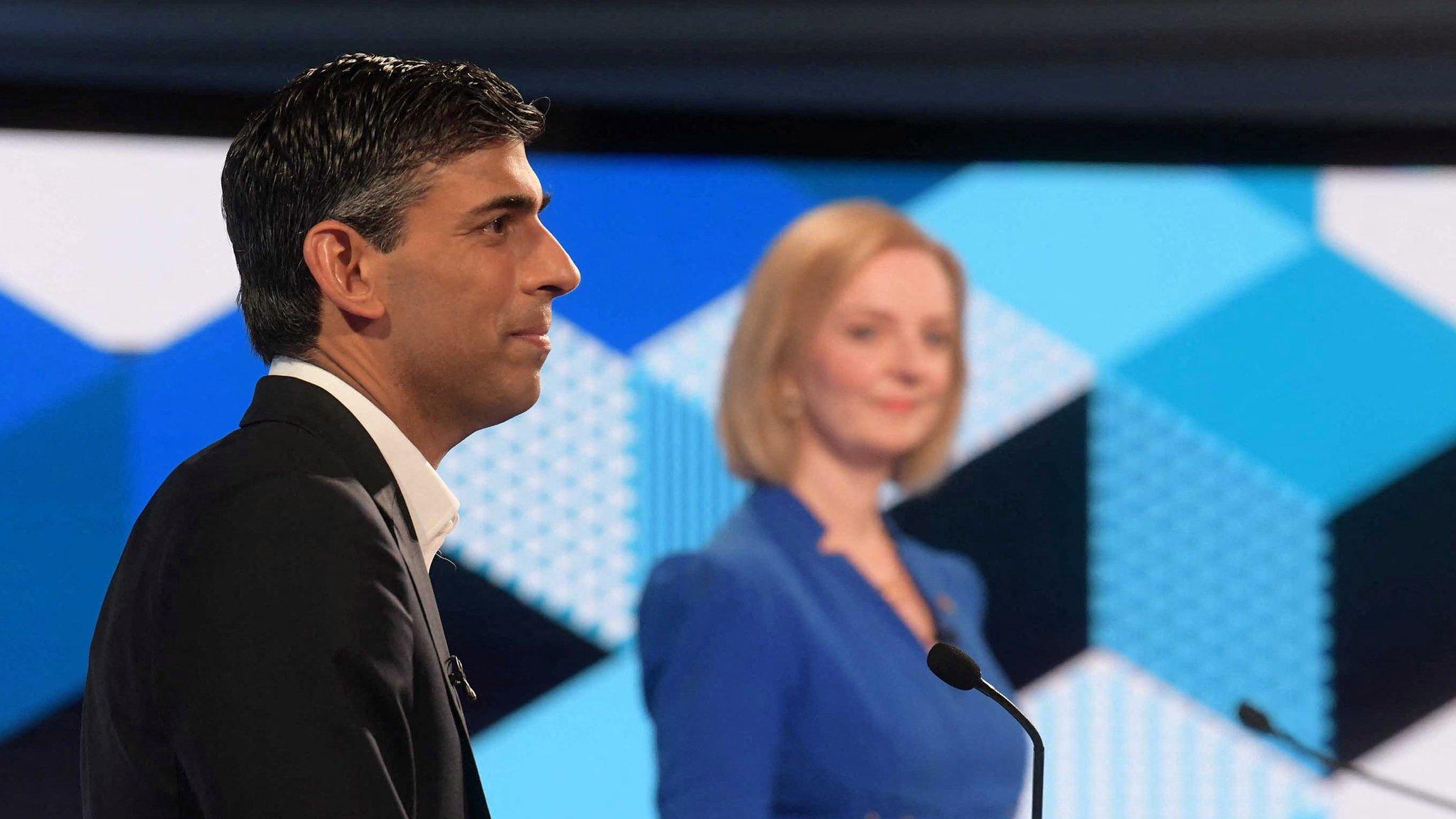'Lives at risk' without more help on energy bills
- Published
- comments

Lives will be at risk this winter, experts and charities have warned, after the energy regulator hiked the price cap on household bills by 80%.
A typical household gas and electricity bill will rise to £3,549 a year from October, Ofgem announced on Friday.
Save the Children said young people's health was at risk and money expert Martin Lewis predicted grave consequences without more state help.
Pressure is growing on Liz Truss and Rishi Sunak to outline further support.
The two Conservative Party leadership candidates have both pledged more direct support for households struggling with surging gas and electricity bills.
But neither have given much detail on what they plan to do ahead of a new party leader - and prime minister - being announced on 5 September.
The rise in the energy price cap - which is the maximum amount that suppliers can charge households per unit of energy - means millions of households will see their annual bills rise from about £1,971 currently. Typical prepayment meter customers will also see their bills rise to £3,608.
Labour has accused Ms Truss and Mr Sunak of having "almost nothing to say" about the huge spike in energy cost.
Chancellor Nadhim Zahawi acknowledged after the announcement of the new cap that "we know we need to do more", and "more help is on its way".
He also suggested people should cut down on how much energy they used.
"The reality is that we should all look at our energy consumption. It is a difficult time. There is war on our continent," he said.
In his meetings with energy generation firms this week, the Chancellor also said energy companies needed to do more to support their customers, rather than relying on customers changing their behaviour or expecting the government alone to help consumers.
During these meetings, companies also acknowledged they needed to do more.
Worried about energy bills? The BBC's Colletta Smith tells you - in a minute - about four discounts and payments that could help
The increase in consumers' bills follows sharp rises in wholesale gas largely due to the conflict in Ukraine, which has reduced supplies of Russian gas.
The government announced in Spring all households will get a £400 rebate on energy bills. It means about £60 will be knocked off energy bills every month for six months. Low income and vulnerable households will receive an additional £650.
However, energy prices have soared since that package of measures was revealed, and from October a typical household will see monthly energy bills of nearly £300 a month.
Mr Lewis, a personal finance journalist and campaigner, warned without extra government support, some people would face health problems because they would not be able to afford to heat their homes.
"I am begging and praying and pleading that there is more government help this winter so that people do not die," he said.
Meanwhile, Save the Children's head of child poverty, Becca Lyon, said: "Children are at serious risk from today's announcement and could spend this winter in cold homes."
Katie Schmuecker, principal policy adviser for the Joseph Rowntree Foundation, a charity which focuses on poverty, added: "It is simply unthinkable that the price rises announced today can go ahead without further government intervention on a significant scale."
How much are energy prices rising by?
The price cap, set by the regulator, Ofgem, is rising by 80% in October
The price of electricity will rise on average from 28p per kilowatt hour (kWh) to 52p and gas will go up from 7p to 15p per kWh
A typical annual energy bill paid by direct debit is currently £1,971. In October, that will rise to £3,549
Prepayment meter customers will pay an extra £59 a year from October, taking the new typical bill on a prepayment meter to £3,608
Analysts at Cornwall Insight have predicted the price cap will climb even more, resulting in a typical annual household bill of £5,400 in January before hitting more than £6,600 in April.
Jonathan Brearley, chief executive of Ofgem, said the predictions should be treated with caution as the current global volatility affecting gas prices could "change massively". But he agreed the next prime minister needed to "act urgently and decisively to address this".
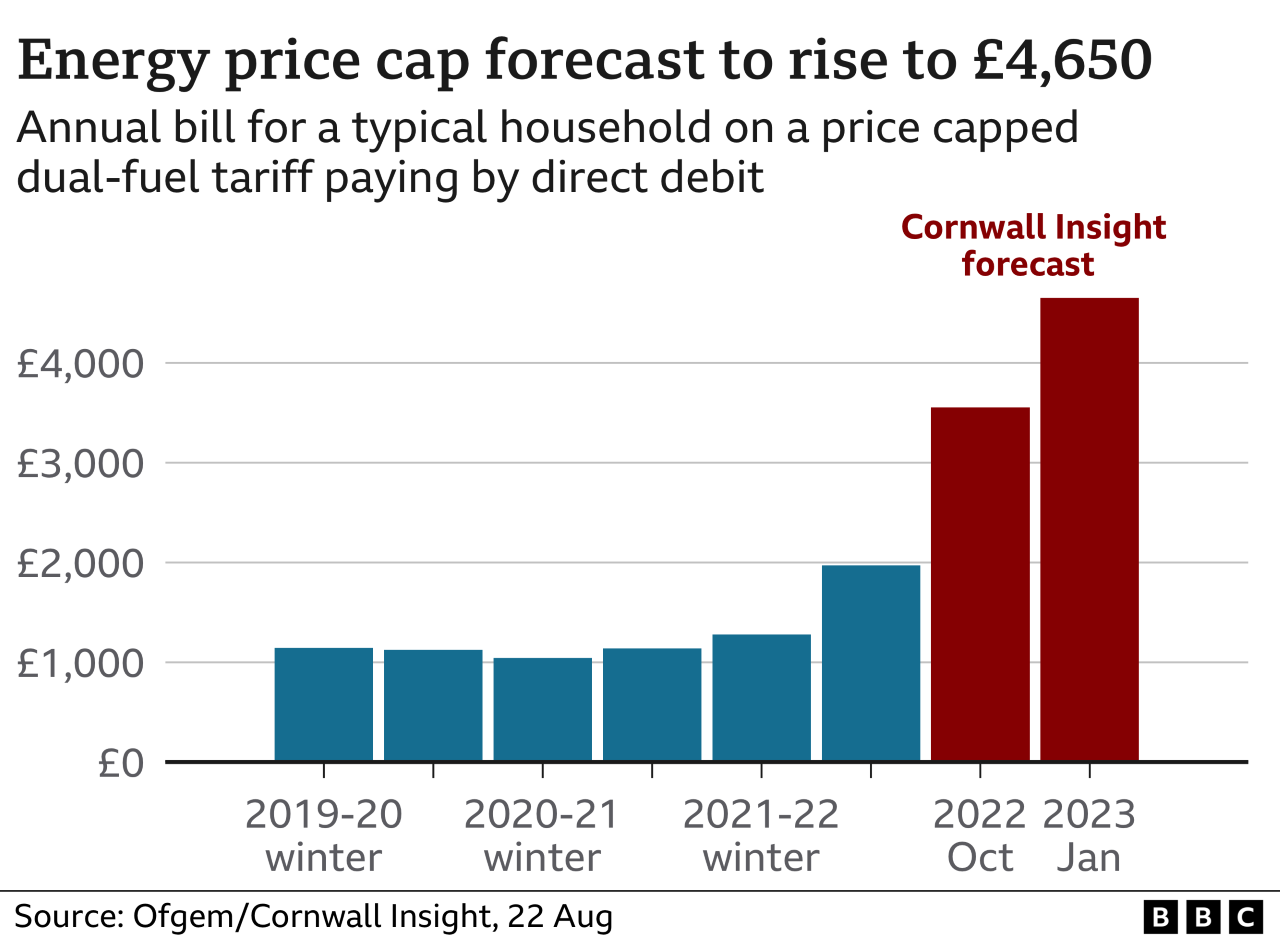
He told the BBC: "All of us, with the government, need to get ahead of this problem and manage it on behalf of customers because the outlook for winter without any action looks very difficult indeed."
Labour and the Liberal Democrats have criticised the government for failing to respond to the growing crisis.
Lib Dem leader Ed Davey said the energy price cap rise was "nothing short of a catastrophe for millions of families and pensioners".
Meanwhile, shadow chancellor Rachel Reeves said the announcement would "strike fear in the heart of many families, and force many to make unthinkable choices this winter".
Businesses are not covered by an energy price cap and many face cost pressures that could be passed on to consumers through higher prices.
Prices have also been rising in Northern Ireland, where there is no cap owing to the limited number of suppliers.

The new energy price cap will drain the disposable income of several million households.
And it is not just an issue which will transform the path of the economy. These rises are so large and so widespread that they could test the nation's social resilience too.
Even the energy industry itself doesn't think these rises are possible.
At a recent meeting with the government to discuss the Energy Tariff Deficit Fund, a key takeaway was that not one energy firm believed it is feasible to charge the nation what the companies themselves are having to pay to purchase gas.
That is an amazing and remarkable situation.
So that gaping hole, that is getting larger every day, week and month is now in the hands of the government.

'The stress, the fear, it's paralysing'
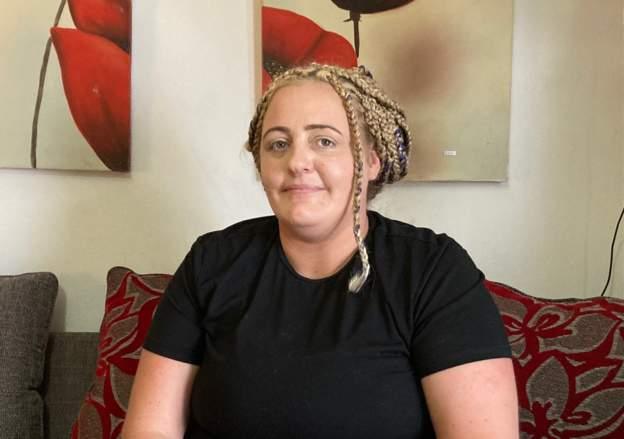
Single mum and student Anne Southgate is taking on a part-time job to make ends meet
Anne Southgate is one of the four million households in the UK on a pre-payment meter; for her, Friday's news is very stressful.
The 38-year-old from Manchester says the thought of her bills rising by so much this winter is taking its toll on her mental health.
"I have to keep fighting back the tears, I don't want the children to see that," she says.
Anne is a single mum and full-time student; she's taken on a part-time job to try to make ends meet.
She's already making lots of cutbacks and doesn't see what more she can do to bring the cost of her bills down.
"We're going to have to spend more time together in one room, I don't really know what more I can physically do."
Related topics
- Published3 April 2024
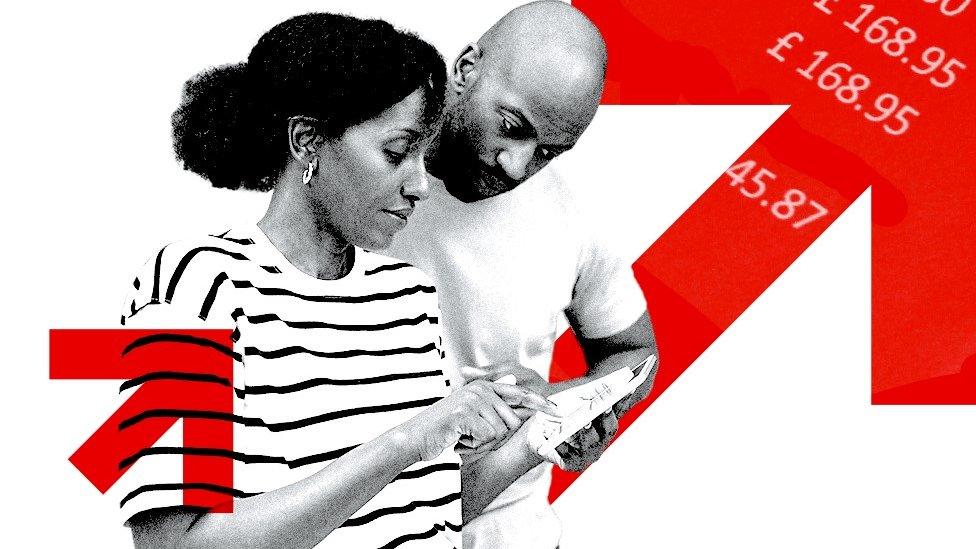
- Published15 February 2024
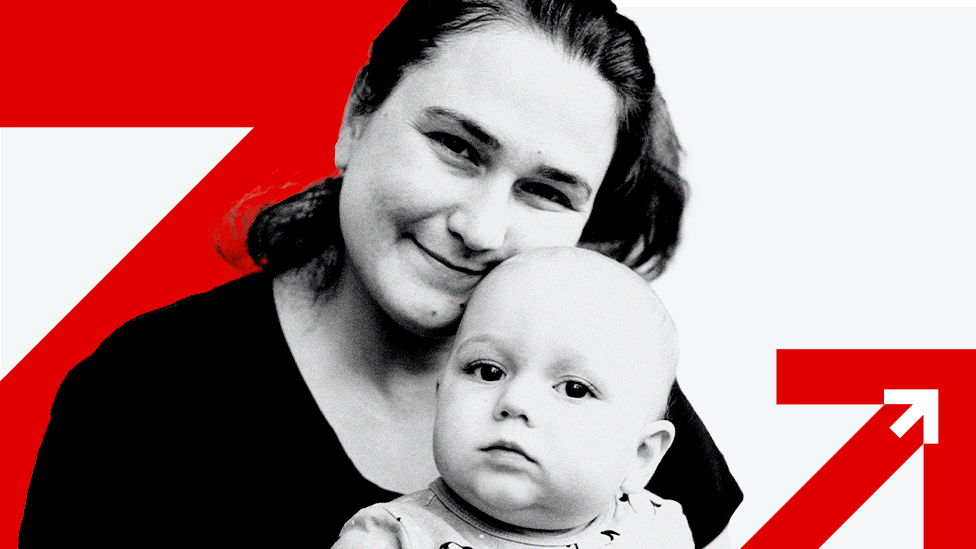
- Published22 September 2022

- Published26 August 2022
